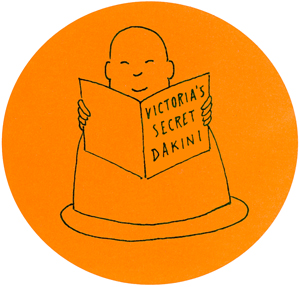 Hindus traditionally divide life into three stages: youth, householder, and finally, on retirement from a full life, spiritual seeker. In the enthusiasm of this last half-century’s discovery of Eastern mysticism and meditation, my generation often reversed this progression.
Hindus traditionally divide life into three stages: youth, householder, and finally, on retirement from a full life, spiritual seeker. In the enthusiasm of this last half-century’s discovery of Eastern mysticism and meditation, my generation often reversed this progression.
This was certainly true in my case. In my twenties, I lived the life of a wandering pilgrim, staying at various monasteries and ashrams in India, Japan, and the United States. In my thirties I retired from monkhood to the “back-to-the-land” lifestyle. I settled on a few acres in the California Sierras, built a house, and grew my own vegetables, while working at teaching and various odd jobs. At the age of forty, my life took another turn. My father, who was getting on in years, offered me his business, Playmates of Hollywood. If it had been anything else I might have demurred, but I couldn’t quite resist the prospect of owning “the world’s largest lingerie store.” I boarded up the cabin, headed down to L.A., and threw myself into a busy life.
At this point, I called on a Sufi sheik. I asked him, “What does it mean? Why am I going into business?” Reshad looked deep into my eyes and poured more than words into my heart: “You are going into business to give love to your customers. You may think that money and merchandise are changing hands, but that is not the important exchange. When someone leaves your store, they must feel absolutely content, like they have had a wonderful meal at the house of a most gracious host, as if they have been served hors d’oeuvres, wines, entrees, aperitifs, and desserts. They should leave feeling that every possible consideration has been made to leave nothing unsatisfied.”
Then I went to my old Zen teacher, Sasaki Roshi, and asked him the same question. I got the same sort of answer: “The store is your temple. It is the center of the universe. When you know this and love being there, the customer will also love being there.” My third guru in these matters was my father. Along with the keys to the store, he offered me a piece of unexpected advice: “The business of business is to forget business.” Although he had never studied Buddhism, my father had a sort of innate Zen about him. Perhaps more from a simple desire for health and peace of mind than for any spiritual motivation, he recognized the challenge of being able to go home and get a good night’s sleep, no matter how things were going at the store.
My respect for the Hindu view of life’s stages continued to deepen the longer I studied meditation. I observed repeatedly that just going off into seclusion doesn’t seem to help anyone too much in the long run. At least in the West, to help us grow into open, compassionate, and wise people, meditation usually needs to be practiced as part of an engaged and active life in our society.
Nonseparation is the bottom line and real challenge of meditation: continually letting go of our boundaries and experiencing everything and everyone as a part of ourselves. The broader we can extend our embrace of nonseparation, the deeper our enlightenment. In a cave, because there is no one, the opportunities are limited. We are limited living in some spiritual community where everyone is quiet and soft and has the same gentle aspirations as ourselves. It seems that my whole generation is arriving at this conclusion. We can best realize the depths of our divinity by exploring the breadth of our humanity in numerous settings.
After several decades at Playmates, I suspected I had learned whatever lessons it held for me, and wished to devote my life more completely to the dharma. At that time, I came across these lines from the Sufi poet Rumi:
We’ve given up making
a living.
It’s all this crazy love
poetry now.
It’s everywhere—our
eyes, our feelings,
our words—all con-
sumed with it.
The poem was a perfect expression of my aspirations to shed merchant responsibilities. I copied it, folded it, and placed it in a corner of my altar. Soon, I was freed of the store. My son came forward to continue the family tradition. ▼
From Wisdom of the East: Stories of Compassion, Inspiration, and Love, © 2002 by Susan Suntree. Reprinted with permission of the McGraw-Hill Companies.